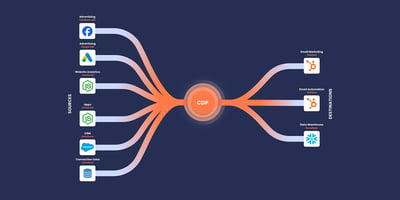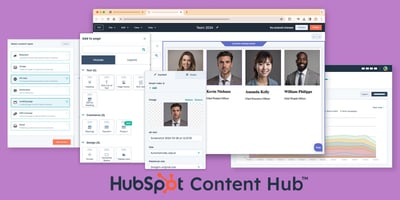This is a great question because it is so often overlooked when businesses are evaluating a CRM platform. All too often they look at the feature set and online reviews without evaluating who left those reviews and what size businesses they worked at.
Ease of use is directly proportional to the level of features in a CRM. On top of this, the user interface (UI) and user experience (UX) of the CRM platform must come into account. Both of these are web and app design & development terms, and in relation to CRM, they mean the following:
User Interface: The visible part of the CRM tool, basically what it looks like to the user.
User Experience: The ease of use and way a user feels when they use the CRM tool.
How CRM features affect ease of use
CRM platforms can be broadly broken up into ‘enterprise’ and ‘small to medium business (SMB) categories. Enterprise CRM platforms are feature rich and complicated to use, but can integrate into multiple other similarly enterprise-level systems. Two examples of enterprise clients include banks and large blue chip companies.
SMB CRM platforms include the features that are necessary for CRM to be successful in a business without all the complicated bells and whistles. More can be read here about CRM for enterprise and SMB businesses.
The truth is that most CRM platforms are never really implemented properly anyway, so our advice is to go for an SMB CRM platform that forces you to focus on the basics of CRM - making it easy for users to adopt it. Keeping it simple increases the likelihood of utilising a CRM to its full potential.
Great examples of SMB CRM platforms are:
- HubSpot CRM (Our personal favourite, and the CRM we use)
- Insightly
- Pipedrive
How the User Experience affects the ease of use
We are so overwhelmed by the many systems we need to interact with to perform our daily tasks that we tend to gravitate towards systems that make us feel productive when we interact with them. Apple is the market leader in this space. Apple fans just love the way all their devices look and feel when using them. As such, they spend hours and hours on them. CRM platforms are subject to the very same drivers for adoption. If a CRM is easy to use, and users feel like they can enhance their productivity using the software - they will continue to use it. Again, this is where the systems designed for SMBs have the edge. Their simplified nature lends them to strong user adoption and continued usage without the need for hours and hours of training.
Again, the same CRM platforms mentioned above provide amazing user experiences:
- HubSpot CRM (Our personal favourite, and the CRM we use)
- Insightly
- Pipedrive
There are other great SMB platforms around, but these are the ones we notice people use a lot. With regards to enterprise systems, look at Salesforce or Microsoft Dynamics as the contenders for ease of use in the enterprise space. They are however much more complicated than the three SMB targeted platforms mentioned above.
Let us help you
We've helped countless SMB businesses implement CRM tools and marketing systems to drive business growth. We continue to work with many enterprise clients to improve their CRM processes as they relate to business development, marketing and lead generation.
Give us a call we'd love to hear from you.
If you're not ready to chat, you might find this eBook useful.





